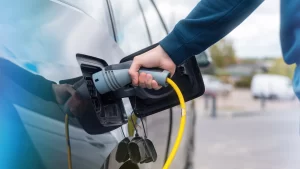Future of EV Cars in India
The future of ev cars 2024 in india is believed to be developing rapidly in India. Campaigns aimed at sharing the global benefits of successful electric vehicle technology domestically and internationally have reduced the costs of production and consumption.
Future of ev cars in india have proven not only to be the cleanest alternative to gasoline-powered cars, but also the most economical. Along with rising fuel prices, this is a boom in the electric vehicle market in India.
In the world today,Future electric cars in india technology plays an important role in environmental protection, cost savings and zero-emission cleanliness. It can reduce the reliance of large countries on fossil fuel-fueled (ICE) vehicles and other conventional transport systems.
In terms of car sales, India is the third largest car market in the world after Germany and Japan. Now is the time for manufacturers and policymakers to work together to shift demand to green innovation. The automobile industry contributes significantly to the Indian economy, accounting for 7.1% of total output and generating a large number of jobs.
Upcoming EV CARS In India
| Electric Car Model | Expected Release | Range (kilometers) | Charging Time (fast charging) | Price Range (estimated) |
| Tata Nexon EV | 2024 | 300+ | 0-80% in 60 minutes | ₹15 lakhs – ₹17 lakhs |
| Mahindra eKUV100 | 2023 | 150+ | 0-80% in 45 minutes | ₹8 lakhs – ₹10 lakhs |
| Hyundai Kona Electric | 2023 | 450+ | 0-80% in 57 minutes | ₹23 lakhs – ₹27 lakhs |
| MG ZS EV | 2023 | 340+ | 0-80% in 50 minutes | ₹21 lakhs – ₹25 lakhs |
| Tata Tigor EV | 2024 | 200+ | 0-80% in 65 minutes | ₹12 lakhs – ₹14 lakhs |
| Audi e-tron | 2023 | 400+ | 0-80% in 30 minutes | ₹1.2 crore – ₹1.5 crore |
TATA EV CARS IN INDIA
TATA is the most demanding automobile manufacturer in India offering segmentation vehicles in India. There are a number of SUVs sold by Tata Motors cars in India;- Tata Nexon EV: The Tata Nexon EV is a compact electric SUV based on the popular Tata Nexon platform.
It has a long driving range, fast charging power and convenient modern features. Nexon EV has been well received in the Indian market due to its affordable pricing and performance. Tata Tigor EV: The Tata Tigor EV is an electric version of the Tata Tigor compact sedan.
They are primarily targeting fleet operators and government companies operating urban transport and city taxi services. The Tigor EV offers a practical and affordable electric mobility solution.
Tata Altroz EV: The Tata Altroz EV is an upcoming electric hatchback based on the Tata Altroz premium hatchback platform. It offers a sleek design, advanced features and a high-performance electric powertrain choice. The Altroz EV is expected to meet the growing demand for electric vehicles in the hatchback segment.
TO READ MORE BLOGS
Price Difference Between EV And Petrol
| Factors | Electric Vehicles (EVs) | Traditional Petrol Vehicles |
| Purchase Price | Initially higher due to battery and electric train costs, but decreasing as technology advances and economies of scale improve. Government incentives can offset initial costs. | Generally lower initial purchase price. |
| Operating Costs | Cheaper due to lower electricity costs per mile/km traveled. Savings depend on electricity vs. fuel prices and vehicle efficiency. | Higher due to more expensive fuel (petrol/diesel). |
| Maintenance Costs | Lower over time due to fewer moving parts, no oil changes, fewer brake replacements, and fewer engine-related repairs. | Higher due to more moving parts, oil changes, and engine-related repairs. |
| Fuel & Charging Costs | Lower due to cheaper electricity for charging compared to petrol for similar distance traveled. Depends on local electricity and fuel prices. | Higher due to more expensive petrol/diesel prices. |
| Resale Value | Initially depreciates faster but may hold value better in the long run due to increasing demand and battery technology improvements. | Typically depreciates more gradually over time. |
| Government Incentives | Tax credits, rebates, exemptions, and other incentives help reduce the price difference between EVs and petrol vehicles. | Generally no specific incentives for traditional petrol vehicles. |








